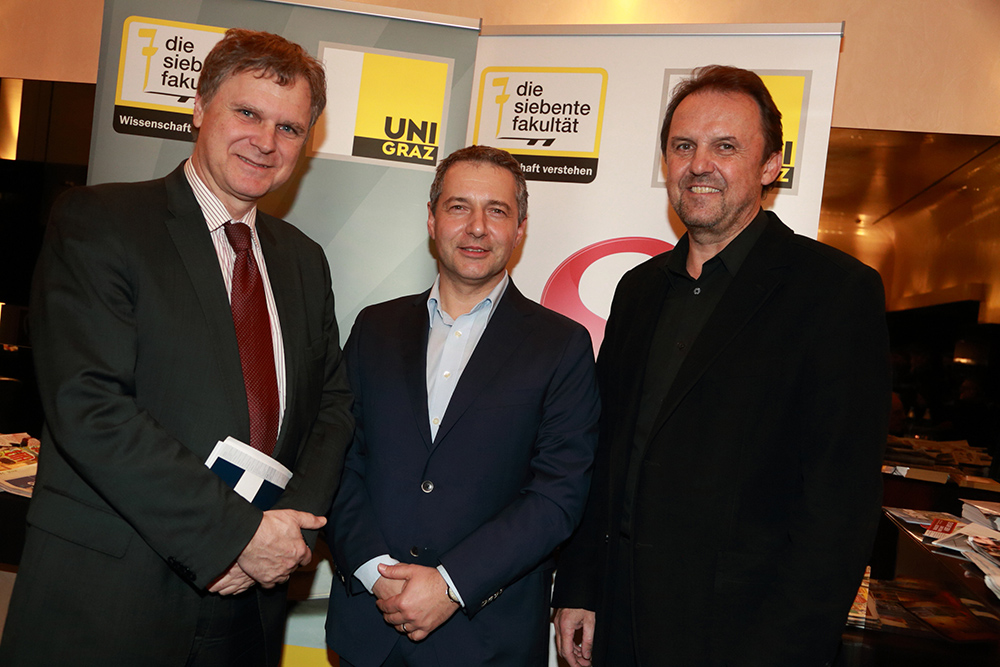Gibt es den oft genannten Luxus hinter Gittern? Eine weitere Ausgabe des „Politik Cafe“ der Uni Graz widmete sich am 20. März 2013 im bis auf den letzten Platz gefüllten Operncafe dieser brisanten Frage. Unter der Leitung von Rechtswissenschafter Ao.Univ.-Prof. Dr. Markus Steppan diskutierten Dr. Thomas Mühlbacher, Leiter der Staatsanwaltschaft Graz und ehemaliger Sonderermittler im Fall Kampusch, Brigadier Josef Adam, Leiter der Justizanstalt Graz-Jakomini sowie ein Gast mit Hafterfahrung, was sich hinter Gefängnismauern tut.
Thomas Mühlbacher unterstrich die Rolle des Staates und den präventiven Charakter von Strafen: „Ziel ist es, dass Täter keine Wiederholung begehen.“ Josef Adam, unter dessen Leitung die Haftanstalt Leoben zu einem Musterbeispiel gestaltet wurde, bestätigte, dass eine schöne Umgebung im Gefängnis zwar als angenehm erlebt werde, aber: „Eine Haft ist ein gravierender Einschnitt in der Lebensführung.“ Das bestätigte auch jener Gast, der alkoholisiert einen Verkehrsunfall verursacht und vier Monate im Gefängnis verbracht hatte: „Wenn man vorher ein ganz normales Leben geführt hat, kann man es sich einfach nicht vorstellen, 24 Stunden lang in einer Zelle zu verbringen.“
Die Veranstaltungsreihe „Politik Café“ ist Teil der 7. fakultät, des Zentrums für Gesellschaft, Wissen und Kommunikation der Uni Graz.
Das Video zur Veranstaltung gibt es hier ab Montag, 25. März.
